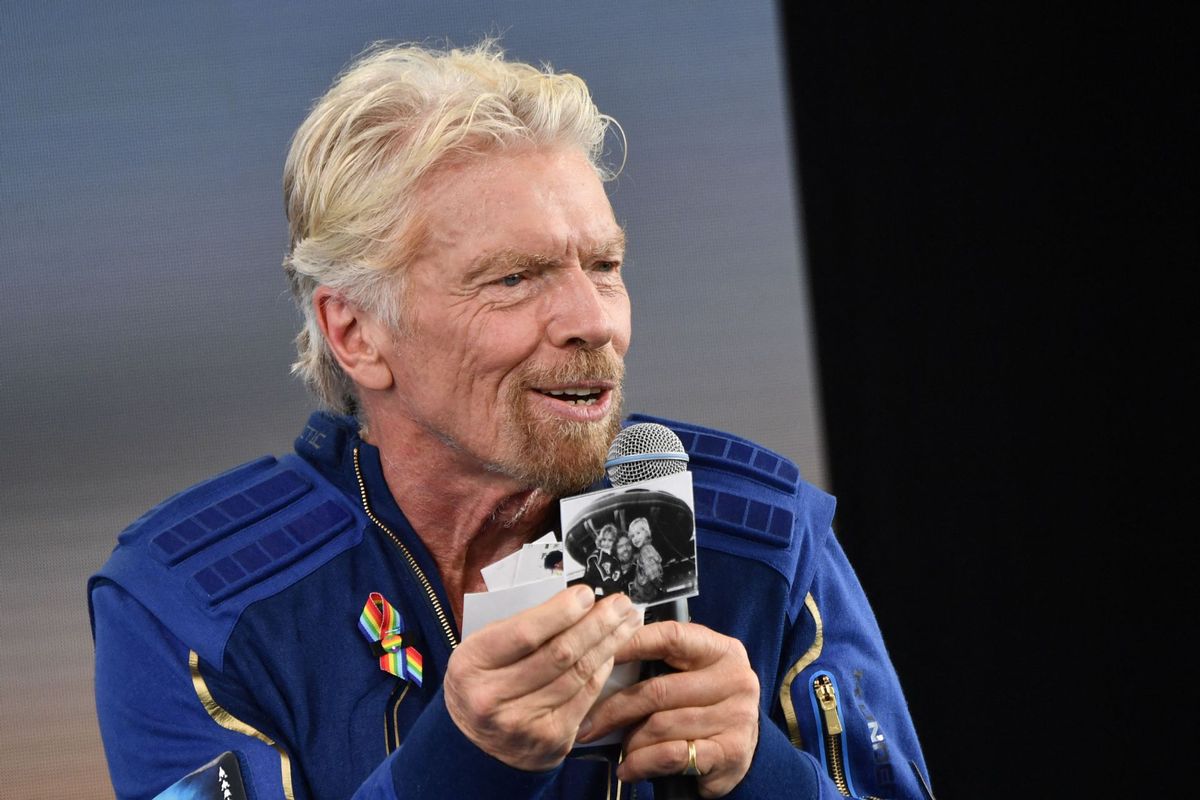Space travel may soon be affordable for adventurous Chinese
By Barry He | China Daily Global | Updated: 2021-07-23 10:01

Virgin boss Richard Branson's successful mission into space on a suborbital flight has thrust the budding space tourism industry back into the public interest.
Private space travel is now within reach of the super-wealthy, but some Asian companies are targeting their marketing at people on regular incomes too, with China's thrill-seeking middle and upper classes seen as potential clients.
The prospect of flights that cost a few thousand pounds, offer zero gravity experiences and a view of the Earth from space, feed the excitement and anticipation.
British entrepreneur Branson, along with several other crew members crossed into what is technically the threshold of space, at an altitude of 53.5 miles.
Windows more typical of a transatlantic economy class jet meant that weightless frolicking was possible for several minutes along with views looking down at the planet below.
Companies around the world are gearing up for similar ventures, with the main challenges being demonstrating safety and instilling confidence in potential consumers. Passenger jet airplanes have been safety tested countless times and the technology is well established. Private companies launching experimental spacecraft to the edge of the atmosphere, however, is a different level of endeavour.
PD AeroSpace in Japan is constructing a so-called space port that is located on an Okinawan island. It aims to launch a similar service to Branson's Virgin Galactic in 2025.
Adventurous travelers from China, who have the economic capability, will be of interest to the company, with the cost of flights running into the hundreds of thousands of dollars per journey.
Ryo Ojima, from the company's business development department, told the South China Morning Post: "We plan to target people across Asia and we believe there are a lot of people who would very much like to go into space if only the price of a flight was lower." He confirmed that the Chinese market would be of interest.
Despite there only still being a handful of space tourists at present, with no current mainstream regular service, hopes are high that this new form of adventure could become lucrative. According to Businesswire, the Chinese space tourism industry is forecast to be worth $401 million by 2027, the second largest in the world. These projections are likely to increase at an exponential but unpredictable rate, as more services become available in the coming decades.
The rate at which technology will improve for space tourism has a major advantage over traditional space ventures. A free market, which is carefully regulated by governments to ensure safety, can allow engineering imaginations to flourish, with competition then leading to a lowering in costs. If you wanted to launch a satellite right now, you would need in excess of around $12 million just for the physical launch, and potentially double this for the necessary insurance. This would only allow you to carry off the feat once, as conventional rockets are single-use before their various parts collapse in a fireball back into the atmosphere. Space flights such as Virgin Galactic or PD Aerospace, however, could feasibly bring this down to as low as $100,000.
Making the final frontier economically viable will be music to the ears of Chinese tourists, who over the past decades have become a more adventurous globe-trotting group on the back of China's economic progress. "Wechat Moments" now share images of sandy Thai beaches or the streets of Paris, but in the future they may feature vistas of sub-orbital space and our blue planet below.
Barry He is a London-based columnist for China Daily.
























